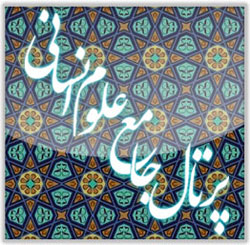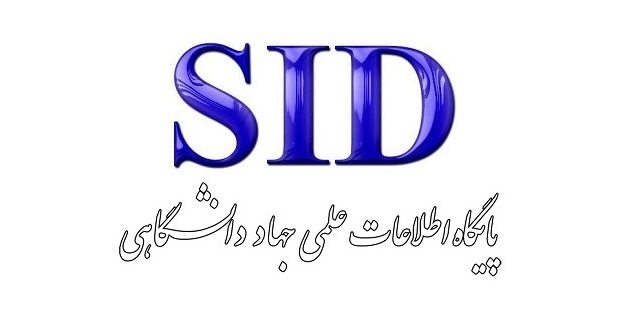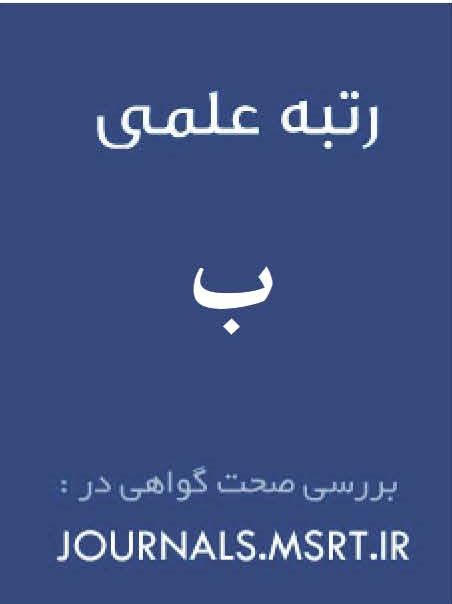Representation of the Idea of Freedom in the Discourse of Nationalism: A Study of the Poems of Two Nationalist Poets, Mehdi Akhavan Sales and Hamid Mosaddegh
Keywords:
freedom, homeland, despotism, Akhavan Sales, MosaddeghAbstract
Love for the homeland, patriotism, and nationalism have long served as instruments in the hands of numerous thinkers and intellectuals to evoke deep emotions and awaken the people’s consciousness in the struggle against despotism, arrogance, and colonialism. Among such ideologies, nationalist discourse stands out as one of the influential intellectual movements within the political sphere and modern political history of Iran. This school of thought has offered new interpretations and orientations to the idea of freedom—an aspiration that Iranians have pursued since the Constitutional Revolution—by associating it with liberation from the yoke of global colonialism and imperialism, the fight against poverty, and other such ideals. Examining the impact of nationalist discourse on the Iranian conception of freedom—which itself functioned as an ideology guiding the quest for liberty—is of particular importance. Given the complexity of examining all aspects of this phenomenon, this article specifically investigates the representation of the idea of freedom in the literary works of two nationalist poets as a means of discerning the broader effects of nationalist discourse. The influence of nationalism on Iranian political literature is evident through its impact on both the writer and the reader. This study aims to analyze nationalism in the poetry of Mehdi Akhavan Sales and Hamid Mosaddegh using the discourse analysis method developed by Laclau and Mouffe (1985). "Homeland" and "Iran" emerge as central signifiers, while "anti-despotism" and "freedom-seeking" function as floating signifiers. Additionally, both poets' works show a significant engagement with mythological themes. The Iranian individual is portrayed as a political subject.
Downloads
References
1. Dorosti A. Political poetry during the Second Pahlavi era: Center for Islamic Revolution Documents; 2002.
2. Attarzadeh M. Reflection of political changes in society in the epic poetry of Akhavan Sales: A case study of the poem “Winter”. Khorasan Cultural and Social Studies. 2018;12(4).
3. Parsa SA, Moradi F. An analysis of social symbolism in the 1950s poetry of Mehdi Akhavan Sales with emphasis on the 1953 coup d'état. She’r Pazhuhi. 2014;19:55-70.
4. Pouryazdanpanah Kermani A, Karami R. Analysis of resistance themes in Akhavan Sales' poetry based on Pierre Bourdieu’s theory of practice. Sacred Defense Literature. 2018;3:47-64.
5. Amouri N, Aghighi M. A comparative analysis of some themes of resistance literature in the poetry of Mehdi Akhavan Sales and Amal Dunqul. Adabnameh-ye Tatbighi. 2014;1(1).
6. Mohammadi A, Ghasemi Dourabadi T. A study and analysis of the titles and poems of Mehdi Akhavan Sales. Persian Literature Journal. 2016;17:77-92.
7. Asadollahi K, Yahyaei M. Analysis of the travel motif in the poems of Akhavan Sales with a case study of the poem “Chavoushi”. Studies in Lyrical Literature. 2017;7(22B):21-32.
8. Vaqefzadeh S, Najafi HS. Balance of patriotic and awakening themes in the poetry of Farrokhi Yazdi and Akhavan Sales. Persian Language and Literature, Islamic Azad University of Sanandaj. 2017(28–29):345-64.
9. Hasanzadeh MAA, Hosseini Kalbadi SH. Myth in the poetry of Hamid Mosadeq. Contemporary Persian Literature. 2012;2(1):49-64.
10. Fakhri Tabatabaei N. The reflection of sociological views in the poetry of Mohammad Reza Shafiei Kadkani and Hamid Mosadeq. Mysticism and Philosophy Literature Studies. 2017;2(4):191-203.
11. Gholami F, Mehraban Qezelhesar J. The influence of political environment on the poetry of Hamid Mosadeq. Ormazd Research Journal. 2020(52):248-61.
12. Lakzian H, Shabani A. An analysis of the didactic teaching of anti-oppression in Hamid Mosadeq’s “Kavian Banner” poem based on John Searle’s speech act theory. Educational Literature Research Journal. 2021(50):1-24.
13. Moghaddami MT. The theory of discourse analysis by Laclau and Mouffe and its critique. Journal of Cultural-Social Knowledge. 2011;2(2):91-124.
14. Ali Abbas Abad Y. Freedom and its associated concepts in modern Persian poetry. Payk-e Noor. 2008;8(2).
15. Bakhtiari MR, editor The role of freedom and liberalism in Persian poetry. The Third Online Conference on Modern Research in Science and Technology; 2015.
16. Maleki A, Abbaspour A. A sociological study of youth attitudes towards national identity and its components: A case study of 16–29-year-olds in Rudsar County, Gilan Province. Police Knowledge Quarterly. 2009;10(2).
17. Sadaraii R, Sadeqi M. Discourse analysis of nationalism in the poetry collection of Ahmad Shamlou based on Laclau and Mouffe’s theory. Textual Literary Research. 2018;22(75).
18. Erfanian L. Discourse analysis of protest poetry in the works of Mehdi Akhavan Sales based on the discourse theory of Laclau and Mouffe. Literary Criticism Studies. 2021;16(50):223-47.
19. Moradhasseli J. The nature of leftist revolutionary discourse in the constitutional era of Iran (post-second parliament). Iranian History. 2019;12(1).
Downloads
Published
Submitted
Revised
Accepted
Issue
Section
License
Copyright (c) 2025 رضا دویده, احمد علی حسابی, یوسف امینی, منوچهر کرد زنگنه (نویسنده)

This work is licensed under a Creative Commons Attribution-NonCommercial 4.0 International License.








